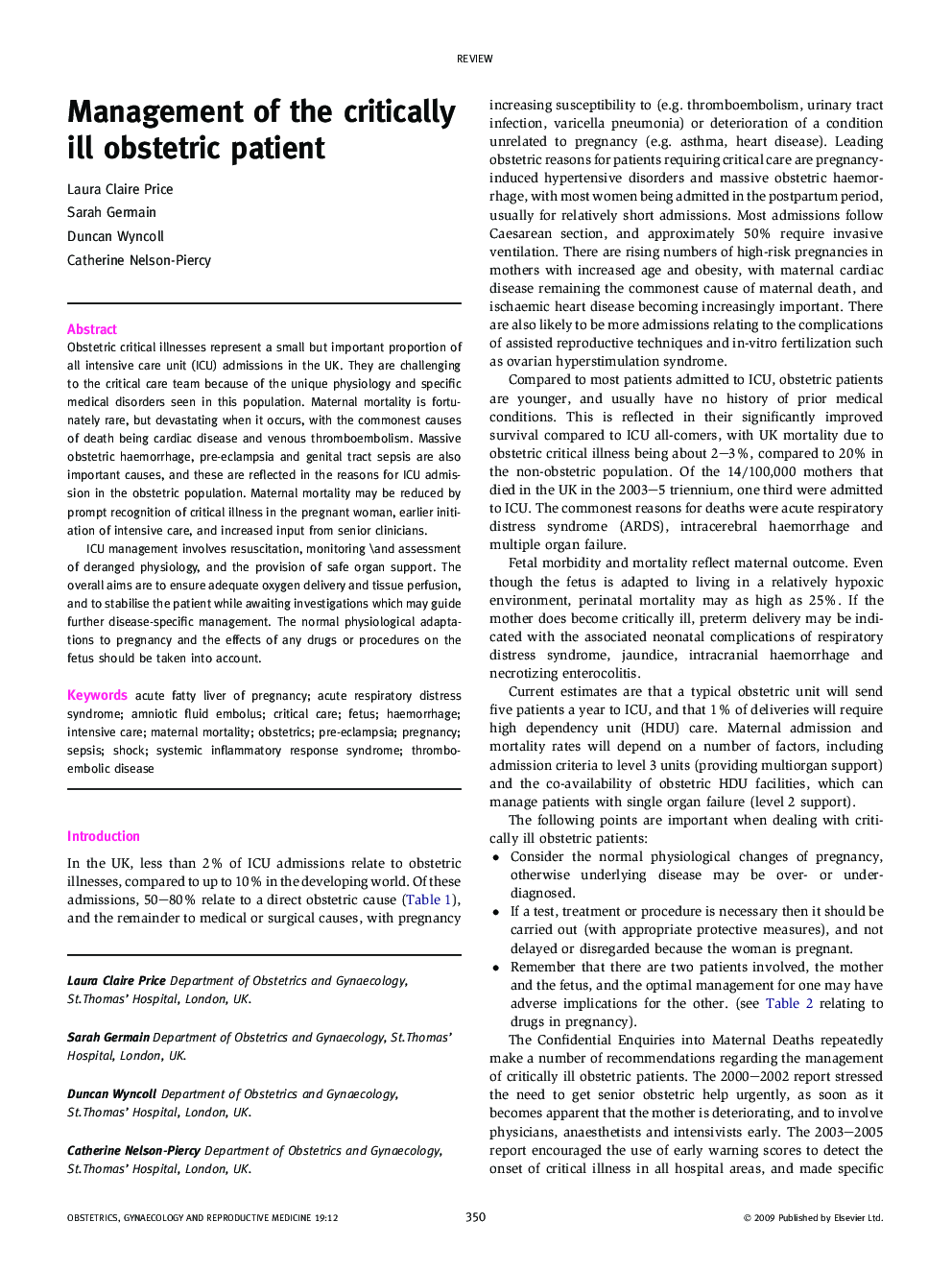| Article ID | Journal | Published Year | Pages | File Type |
|---|---|---|---|---|
| 3967399 | Obstetrics, Gynaecology & Reproductive Medicine | 2009 | 9 Pages |
Obstetric critical illnesses represent a small but important proportion of all intensive care unit (ICU) admissions in the UK. They are challenging to the critical care team because of the unique physiology and specific medical disorders seen in this population. Maternal mortality is fortunately rare, but devastating when it occurs, with the commonest causes of death being cardiac disease and venous thromboembolism. Massive obstetric haemorrhage, pre-eclampsia and genital tract sepsis are also important causes, and these are reflected in the reasons for ICU admission in the obstetric population. Maternal mortality may be reduced by prompt recognition of critical illness in the pregnant woman, earlier initiation of intensive care, and increased input from senior clinicians.ICU management involves resuscitation, monitoring \and assessment of deranged physiology, and the provision of safe organ support. The overall aims are to ensure adequate oxygen delivery and tissue perfusion, and to stabilise the patient while awaiting investigations which may guide further disease-specific management. The normal physiological adaptations to pregnancy and the effects of any drugs or procedures on the fetus should be taken into account.
